- Home›
- Healthy Living›
- 13 High Protein Vegetarian Food To Eat For Muscle Gain
13 High Protein Vegetarian Food To Eat For Muscle Gain
By: Priyanka Maheshwari Mon, 08 July 2024 11:52:18
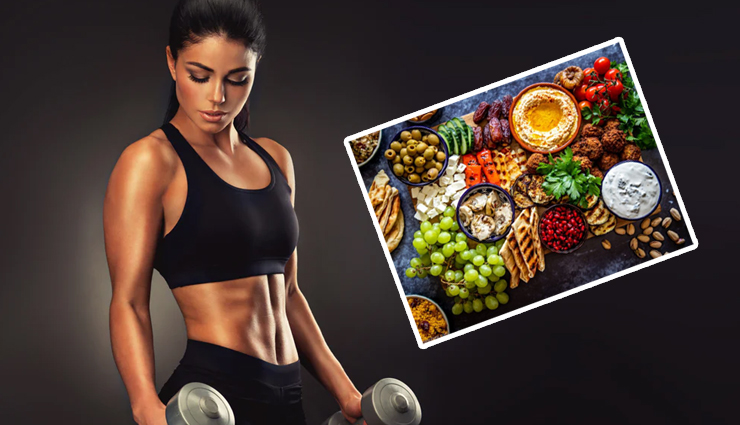
Protein is crucial for bodybuilding and overall health as it contains amino acids, the essential building blocks for muscle tissue.
Adequate intake of amino acids, either from your diet or natural supplements, enables your body to trigger muscle protein synthesis. One notable amino acid is Leucine, extensively studied for its ability to enhance protein synthesis and counteract muscle protein breakdown.
This process of protein synthesis is responsible for converting dietary protein into muscle mass. However, achieving muscle growth requires a combination of regular exercise and consumption of protein-rich foods.
Moreover, by using the appropriate plant-based protein powder, individuals can pursue a vegan diet while still promoting muscle gain. In this article, we will explore 13 vegetarian food options that are not only rich in protein but also packed with other vital nutrients to support your muscle-building goals.
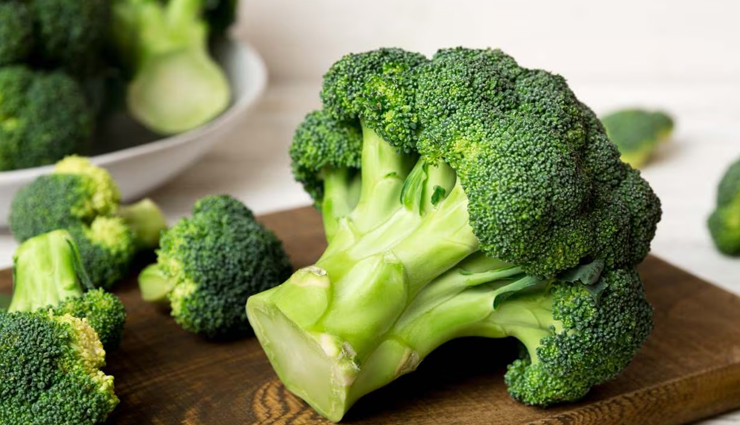
# Broccoli
Broccoli can be a beneficial addition to a muscle gain diet due to its nutrient profile. While it may not be as protein-dense as other foods commonly associated with muscle building, such as meat or legumes, broccoli provides several key nutrients that support muscle growth and overall health.
Broccoli is a rich source of vitamins, minerals, and antioxidants, which are essential for maintaining optimal bodily functions. It contains vitamin C, which supports collagen synthesis for healthy tendons and ligaments, aiding in muscle recovery and repair.
Furthermore, broccoli contains dietary fiber, which aids in digestion and promotes a healthy gut environment. A healthy digestive system is crucial for nutrient absorption and utilization, including the proteins consumed for muscle development.
Although broccoli alone may not provide a significant amount of protein, it can be combined with other protein-rich foods to create a balanced meal. Pairing broccoli with protein sources like lean meats, fish, eggs, legumes, or tofu can enhance the overall protein content and contribute to muscle growth.
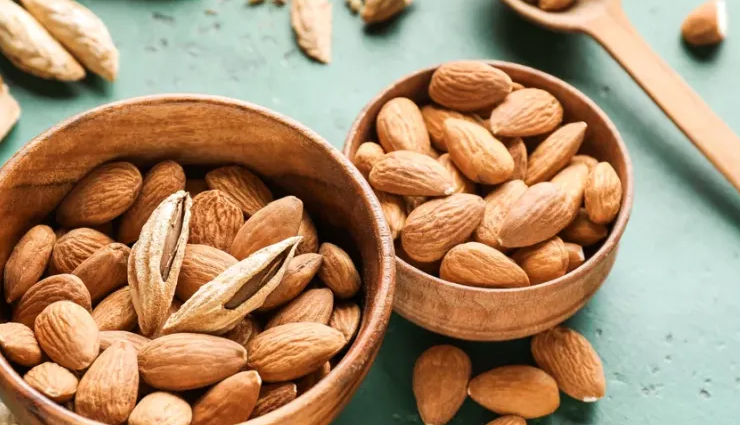
# Almonds
Almonds can be a beneficial addition to a muscle gain diet due to their nutrient composition. While they are not as protein-dense as certain animal-based protein sources, they provide several nutrients that support muscle growth and overall health.
Almonds are a good source of protein, healthy fats, and fiber. Protein is essential for muscle repair and growth, and almonds can contribute to your overall protein intake. They also contain healthy fats, including monounsaturated fats, which can help with hormone production and provide sustained energy during workouts.
Additionally, almonds are rich in micronutrients such as vitamin E, magnesium, and manganese. These nutrients play a role in muscle function, energy metabolism, and antioxidant defense, which are important for supporting muscle growth and recovery.
However, it's important to note that almonds should be consumed in moderation due to their relatively high calorie content. They are nutrient-dense but also calorie-dense, so portion control is key.
To optimize muscle gain, it is advisable to incorporate almonds as part of a balanced diet that includes other protein sources such as lean meats, poultry, fish, legumes, and dairy products. This will provide a variety of essential amino acids necessary for muscle development.
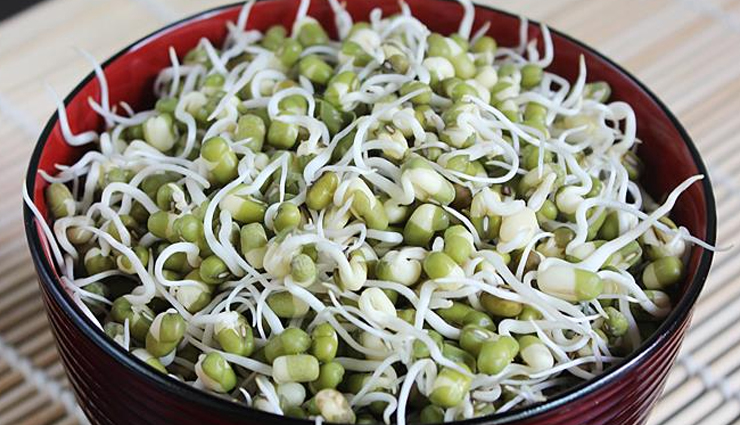
# Mung Bean Sprouts
Mung bean sprouts can be a valuable addition to a muscle gain diet due to their nutrient content. While they may not be as protein-dense as some animal-based protein sources, they offer several beneficial nutrients that support muscle growth and overall health.
Mung bean sprouts are a good source of plant-based protein. Protein is crucial for muscle repair and growth, and incorporating mung bean sprouts into your meals can contribute to your overall protein intake.
In addition to protein, mung bean sprouts are rich in vitamins and minerals. They are particularly high in vitamin C, which aids in collagen synthesis and supports connective tissues, including tendons and ligaments involved in muscle function.
Moreover, mung bean sprouts provide dietary fiber, which promotes healthy digestion and nutrient absorption. This can optimize the utilization of proteins and other nutrients needed for muscle development.
To maximize the muscle-building benefits of mung bean sprouts, it's recommended to combine them with other protein sources such as lean meats, fish, eggs, or tofu. This will provide a wider range of essential amino acids necessary for muscle growth.
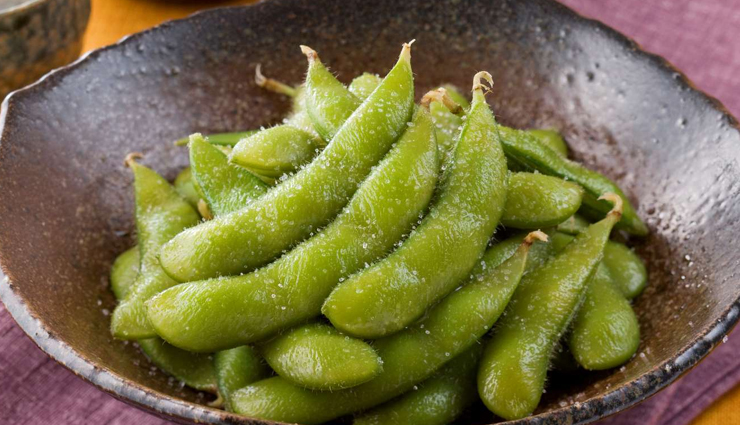
# Edamame
Edamame can be an excellent addition to a muscle gain diet due to its nutrient profile. It is a plant-based protein source that offers various benefits for muscle development and overall health.
Edamame is rich in high-quality protein, providing all the essential amino acids necessary for muscle growth and repair. Protein is crucial for building and maintaining muscle mass, and incorporating edamame into your meals can contribute to meeting your protein needs.
Furthermore, edamame is a good source of fiber, which aids in digestion and helps regulate appetite. This can support overall nutrient absorption and assist in maintaining a balanced diet conducive to muscle gain.
Edamame also contains a range of essential vitamins and minerals, including folate, vitamin K, and manganese. These nutrients play a role in energy metabolism, bone health, and muscle function, contributing to optimal muscle development.
To optimize the muscle-building benefits of edamame, consider combining it with other protein sources such as lean meats, poultry, fish, legumes, or dairy products. This will provide a diverse array of essential amino acids necessary for muscle growth.
# Chickpeas
Chickpeas can be a valuable addition to a muscle gain diet due to their nutrient composition. They offer several beneficial nutrients that support muscle growth and overall health.
Chickpeas are a rich source of plant-based protein. Protein is essential for muscle repair and growth, and incorporating chickpeas into your meals can contribute to meeting your protein needs. They also contain a good balance of essential amino acids necessary for muscle development.
In addition to protein, chickpeas provide complex carbohydrates and dietary fiber. Carbohydrates serve as a primary energy source for workouts and help replenish glycogen stores in muscles after exercise. Fiber aids in digestion and promotes a healthy gut environment, which can optimize nutrient absorption and utilization.
Chickpeas are also packed with vitamins and minerals such as iron, magnesium, and zinc. These nutrients play a vital role in muscle function, energy production, and overall health.
To maximize the muscle-building benefits of chickpeas, consider combining them with other protein sources such as lean meats, fish, eggs, or dairy products. This will provide a diverse range of essential amino acids necessary for muscle growth.
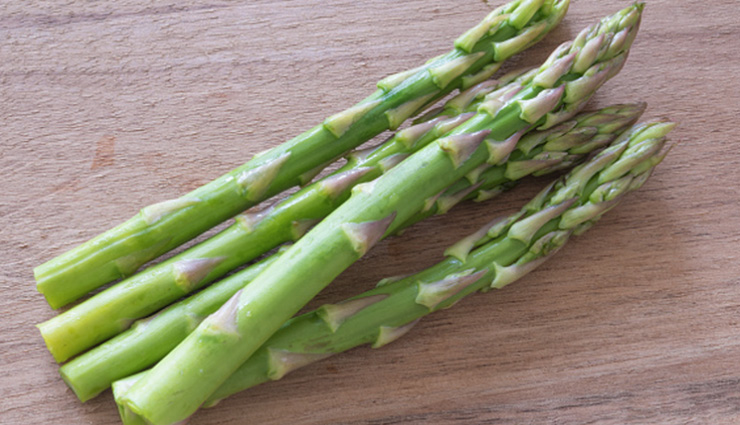
# Asparagus
While asparagus is not typically associated with muscle gain due to its relatively low protein content, it still offers several benefits that support overall health and can complement a muscle gain diet.
Asparagus is a nutrient-dense vegetable that is rich in vitamins, minerals, and antioxidants. It is particularly high in vitamins A, C, E, and K, as well as folate and potassium. These nutrients play important roles in maintaining a healthy immune system, supporting energy metabolism, and promoting optimal muscle function.
Furthermore, asparagus contains dietary fiber, which aids in digestion and supports a healthy gut environment. Good digestion is crucial for nutrient absorption and utilization, including the proteins consumed for muscle development.
While asparagus does not provide a significant amount of protein, it can still be included in a muscle gain diet as part of a balanced meal. Pairing asparagus with protein-rich foods such as lean meats, fish, eggs, legumes, or tofu can help increase the overall protein content of the meal.
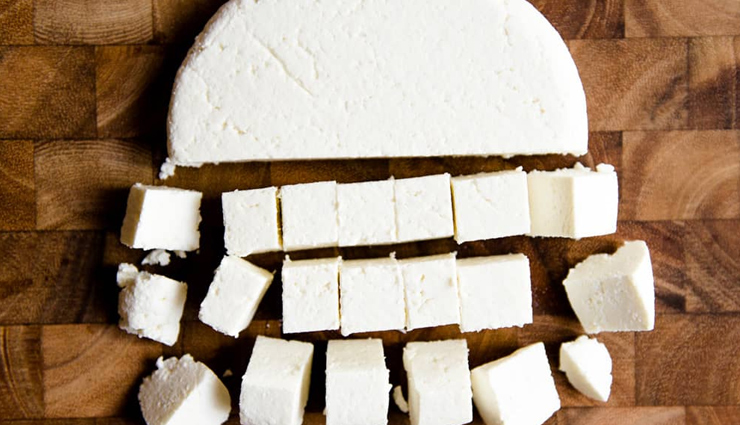
# Paneer
Paneer, a type of Indian cheese made from cow's milk, can be a beneficial addition to a muscle gain diet due to its nutrient profile.
Paneer is a rich source of high-quality protein, making it an excellent option for muscle growth and repair. Protein is essential for building and maintaining muscle mass, and paneer provides a complete amino acid profile necessary for muscle development.
Additionally, paneer is a good source of calcium and phosphorus, which are essential for bone health and muscle function. These minerals contribute to the overall strength and integrity of the musculoskeletal system, supporting optimal performance during workouts and reducing the risk of injuries.
Paneer also contains healthy fats and a moderate amount of calories, which can provide sustained energy for physical activities and muscle recovery. However, it's important to consume paneer in moderation, as it can be calorie-dense.
To maximize the muscle-building benefits of paneer, consider incorporating it into a balanced meal with other protein sources such as lean meats, fish, eggs, legumes, or plant-based proteins. This will provide a variety of essential amino acids necessary for muscle growth.
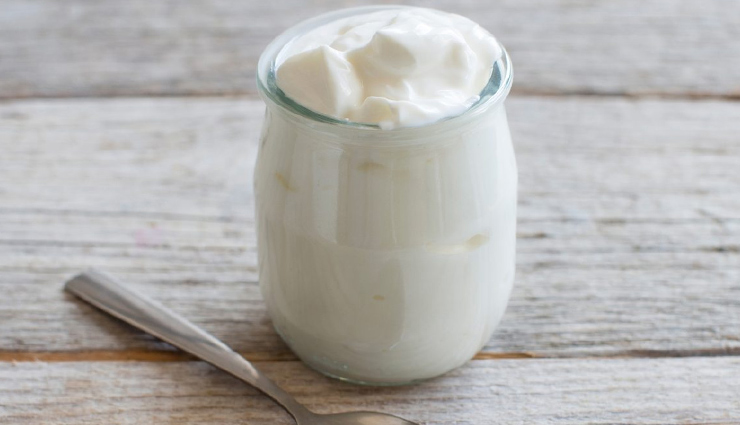
# Greek Yogurt
Greek yogurt is a rich source of protein, containing more protein than regular yogurt. Protein is essential for muscle repair, growth, and maintenance. Including Greek yogurt in your diet can contribute to meeting your protein needs and supporting muscle development.
Furthermore, Greek yogurt is a good source of calcium, which plays a crucial role in muscle function, bone health, and overall strength. Adequate calcium intake is important for proper muscle contractions during workouts and can aid in preventing muscle cramps and injuries.
Greek yogurt also provides beneficial probiotics, which support a healthy gut environment. Good gut health is linked to improved digestion and nutrient absorption, including the proteins consumed for muscle building.
Additionally, Greek yogurt is relatively low in carbohydrates and contains a moderate amount of healthy fats, making it a versatile option that can be included in various meal plans, including those focused on muscle gain.
To maximize the muscle-building benefits of Greek yogurt, consider combining it with other protein sources, such as nuts, seeds, or fruits, to create a balanced meal. This will provide a diverse range of essential amino acids necessary for muscle growth.
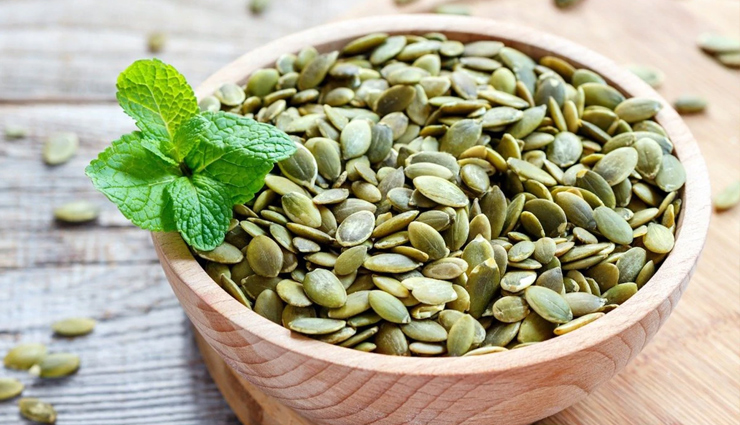
# Pumpkin Seeds
Pumpkin seeds are a rich source of protein, healthy fats, and dietary fiber. Protein is essential for muscle repair and growth, and incorporating pumpkin seeds into your diet can contribute to your overall protein intake. They also provide a good balance of essential amino acids necessary for muscle development.
Moreover, pumpkin seeds are high in healthy fats, including monounsaturated fats and omega-3 fatty acids. These fats play a role in supporting hormone production, reducing inflammation, and providing sustained energy during workouts.
Dietary fiber present in pumpkin seeds aids in digestion, promotes satiety, and helps regulate blood sugar levels. This can support a healthy gut environment and optimize nutrient absorption, including the proteins needed for muscle gain.
Additionally, pumpkin seeds are a rich source of micronutrients such as magnesium, zinc, and iron. These minerals are important for muscle function, energy production, and overall health.
To maximize the muscle-building benefits of pumpkin seeds, consider incorporating them into your meals or snacks. They can be sprinkled on salads, added to smoothies, or enjoyed as a standalone snack.
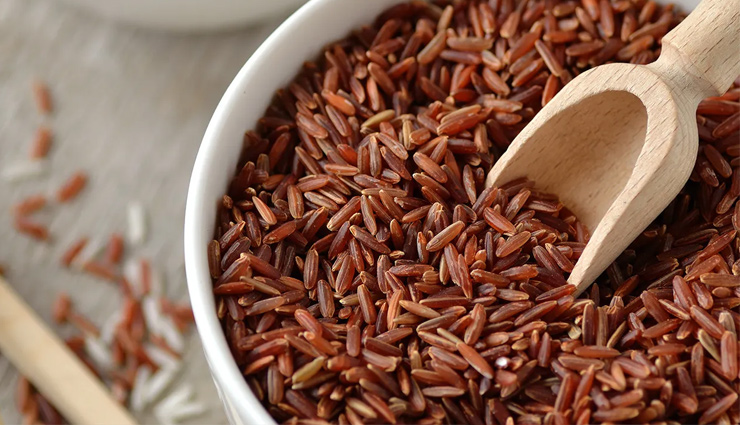
# Brown Rice
Brown rice can be a beneficial addition to a muscle gain diet due to its nutrient composition and benefits for overall health.
Brown rice is a complex carbohydrate that provides sustained energy, making it suitable for fueling workouts and replenishing glycogen stores in muscles after exercise. It is also a good source of dietary fiber, which aids in digestion and promotes a healthy gut environment. A healthy digestive system is important for nutrient absorption and utilization, including the proteins consumed for muscle development.
While brown rice is not as protein-dense as some other foods, it still contains a modest amount of protein. Combining brown rice with other protein sources, such as lean meats, fish, legumes, or tofu, can help create a balanced meal that provides a variety of essential amino acids necessary for muscle growth.
Additionally, brown rice is rich in vitamins and minerals, including B vitamins, magnesium, and selenium. These nutrients play important roles in energy metabolism, muscle function, and overall health.
It's worth noting that brown rice is a whole grain and retains its outer bran layer, which contains beneficial nutrients and dietary fiber. In comparison, white rice has been processed and stripped of these outer layers, resulting in lower nutrient content.
To maximize the muscle-building benefits of brown rice, consider incorporating it into your meals as part of a well-rounded diet that includes a variety of protein sources and other nutrient-dense foods.
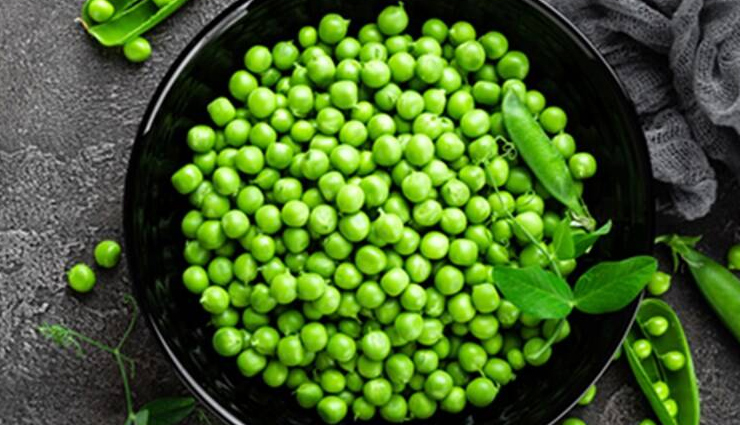
# Peas
Peas can be a beneficial addition to a muscle gain diet due to their nutrient composition and various health benefits.
Peas are a plant-based protein source that provides essential amino acids necessary for muscle growth and repair. They are particularly rich in branched-chain amino acids (BCAAs), including leucine, isoleucine, and valine, which play a crucial role in muscle protein synthesis. Including peas in your diet can contribute to meeting your protein needs and supporting muscle development.
Furthermore, peas are a good source of dietary fiber, which aids in digestion and promotes a healthy gut environment. Good digestion is important for nutrient absorption and utilization, including the proteins consumed for muscle building.
Peas also contain vitamins and minerals such as vitamin C, vitamin K, and manganese. These nutrients support immune function, bone health, and overall muscle function.
In addition to their protein content, peas are relatively low in fat and calories, making them a nutrient-dense food that can be incorporated into a muscle gain diet without excessive calorie intake.
To maximize the muscle-building benefits of peas, consider incorporating them into your meals as part of a balanced diet that includes other protein sources such as lean meats, fish, eggs, or plant-based proteins. This will provide a diverse range of essential amino acids necessary for muscle growth.
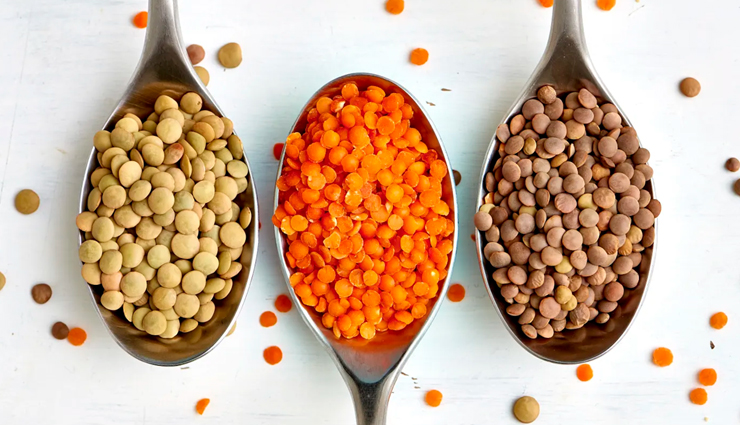
# Lentils
Lentils can be a valuable addition to a muscle gain diet due to their nutrient profile and numerous health benefits.
Lentils are an excellent plant-based protein source, providing a substantial amount of protein necessary for muscle growth and repair. They contain a balanced profile of essential amino acids, including a good amount of the amino acid leucine, which is known for its role in promoting muscle protein synthesis.
In addition to protein, lentils are rich in complex carbohydrates and dietary fiber. Carbohydrates serve as a primary energy source for workouts and replenish glycogen stores in muscles after exercise. The fiber in lentils supports healthy digestion and promotes satiety, aiding in weight management and maintaining a balanced diet conducive to muscle gain.
Lentils also provide essential vitamins and minerals such as iron, folate, and potassium. Iron is essential for oxygen transport and energy production, while folate supports red blood cell production and muscle function. Potassium plays a role in muscle contractions and maintaining fluid balance in the body.
Moreover, lentils have a low glycemic index, meaning they have a minimal impact on blood sugar levels. This can help stabilize energy levels and prevent spikes and crashes that can affect workout performance.
To maximize the muscle-building benefits of lentils, consider incorporating them into your meals as part of a balanced diet that includes other protein sources such as lean meats, fish, eggs, or plant-based proteins. This will provide a diverse array of essential amino acids necessary for muscle growth.
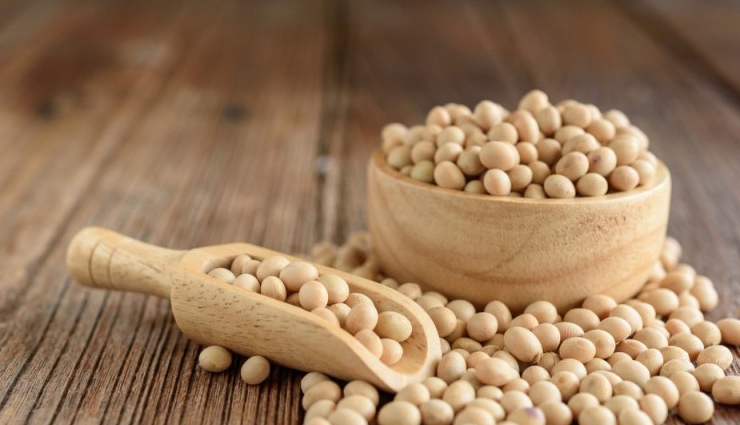
# Soybean
Soybeans can be a beneficial addition to a muscle gain diet due to their nutrient composition and high-quality protein content.
Soybeans are a complete plant-based protein source, meaning they provide all the essential amino acids necessary for muscle growth and repair. They are particularly rich in the amino acid leucine, which plays a crucial role in promoting muscle protein synthesis.
Including soybeans or soy products such as tofu, tempeh, or edamame in your diet can contribute to meeting your protein needs and supporting muscle development. Soy protein is considered comparable to animal-based protein in terms of its ability to support muscle growth and recovery.
In addition to protein, soybeans contain complex carbohydrates, dietary fiber, and healthy fats. These nutrients provide sustained energy, support digestion, and aid in nutrient absorption. They also contribute to a balanced diet that is conducive to muscle gain.
Soybeans are also rich in vitamins and minerals such as folate, magnesium, and potassium. These nutrients play important roles in energy metabolism, muscle function, and overall health.
It's important to note that some individuals may have soy allergies or sensitivities, so it's necessary to consider personal factors and consult with a healthcare professional if needed.
To maximize the muscle-building benefits of soybeans, incorporate them into your meals as part of a well-rounded diet that includes a variety of protein sources. This will provide a diverse range of essential amino acids necessary for muscle growth.





